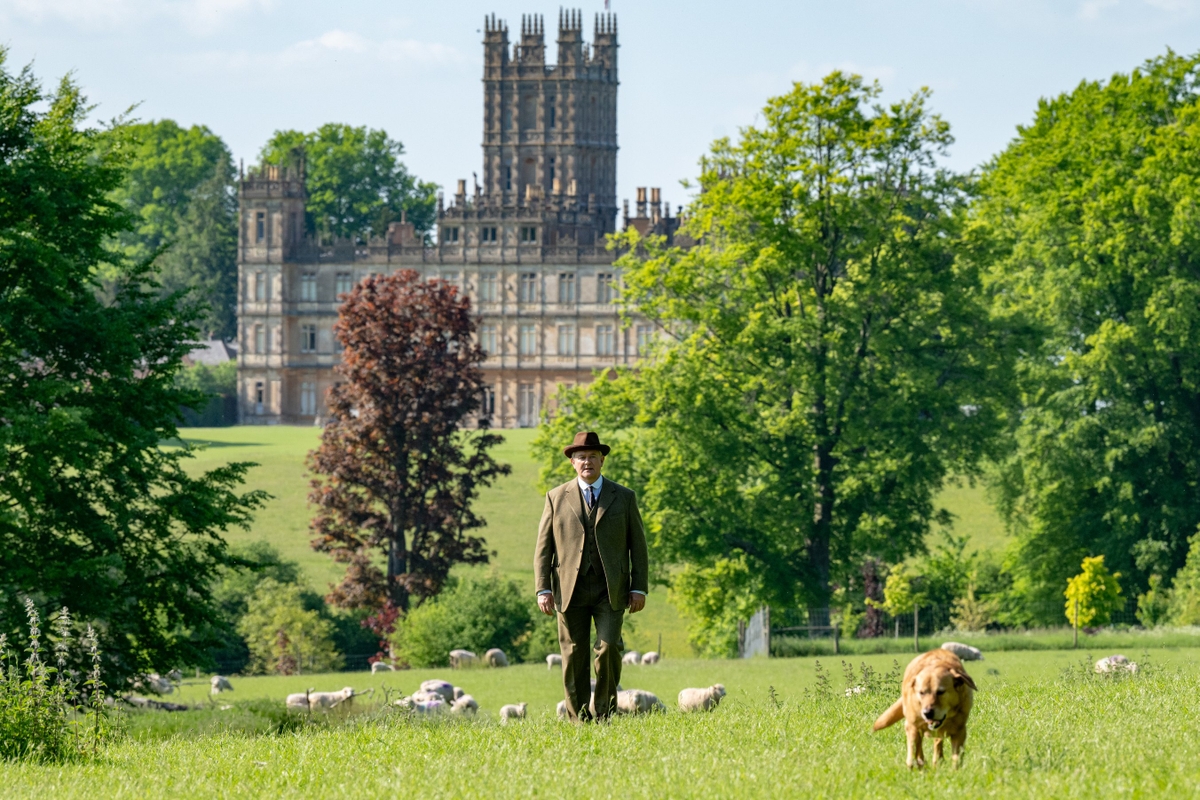What has surprised you most since when you first envisioned the story and its characters?
Fellowes: Personally, what always surprises me is the extent to which I get caught up in the storyline. I remember at the end of series three when Sybil died and I was sobbing away on the sofa and my wife said to me, “Well, you wrote it. What did you think was going to happen?” I can’t really explain how I am able to separate the story from the experience, but I do. The characters have become very moving to me. Obviously, I enjoyed Maggie very much all the way through. We had made two films together before we ever embarked on Downton. We weren’t great pals who took a house by the sea together, but she knew how to say what I wrote and I knew how to write what she would say. Although Maggie had a great career before she ever heard of Downton Abbey, I was nevertheless pleased that we gave her a new level of fame. If she was here with us, she’d probably argue and say that it rather spoiled things because up till then she could win Oscars and still go to the grocers and be left alone.
What was the inspiration for making Noël Coward a character in the film?
Fellowes: We knew that his play Bitter Sweet opened in 1930, which is when we were setting the film. Noël Coward was so much the voice of this particular interwar period in England. It was my son, actually, who said, “I think you’re mad not to have Coward in it.” He was not part of Victorian England, which is, you know, still hanging on to the skirts of half of the characters. Although he became a cabaret star later on, Coward’s prime time was the ‘30s.
Curtis: It’s interesting that people now think of Noël Coward as this old man. We present him at age 30, at the peak of his career, when he was the Harry Styles of his time.
Fellowes: He was so young when he hit the big time. When Bitter Sweet opened, it was the biggest, hottest ticket in London.
Curtis: He came off as a posh man, but in fact he was just a boy from Teddington.
Fellowes: He remade himself in the way people did then. But that’s all gone now. I believe now, the rougher your background, the more you parade it to the public’s delight. In that time, Coward was a man of his own charm and reinvented himself with a different voice. What is interesting is that he didn’t tell untruths about his own past ever. He always presented the truth. But he presented it from the viewpoint of a very different kind of person.
Coward had such wit and charisma. How difficult was it to find someone who could capture that sort of brilliance?
Curtis: It was harder than I thought it was going to be. But we struck gold with Arty [Froushan], who was delighted to devour all the research he could find. And I think he performs the song, “Poor Little Rich Girl” very well. I’m thrilled with Arty’s performance.
